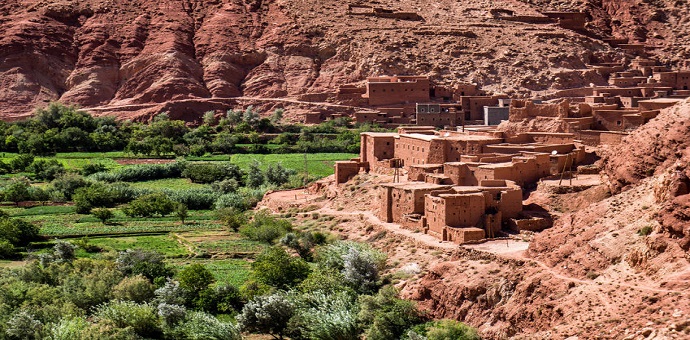PRESS RELEASE
For immediate distribution
Laval, August 24, 2018.
- Technologies Ecofixe, a Laval-based company that designs biological wastewater treatment systems, is proud to announce that it will be carrying out an international climate cooperation project in Morocco, thanks to a grant from the government of Quebec totaling $934,520, from the Green Fund as part of the 2013-2020 Climate Change Action Plan.

Focused on increasing capacities, technology transfers, and raising public awareness about climate change, this project will help increase the resilience of Moroccan communities faced with the issues of water healthiness and climate change.
The project will be run in partnership with several Quebec companies, including Umalia, specializing in corporate social responsibility, stainless-steel manufacturer Acier inoxydable Fafard and AGÉCO Group, and with Moroccan organizations and companies, such as the National Office for Electricity and Potable Water (ONEE), Mohammed V University, and the Anzar Conseil consulting firm.
Morocco’s water resources have become more scares and have deteriorated over the past ten years, due to climate change and increased needs tied to agriculture irrigation. To make up for the lack of water, the region’s farmers and ranchers are now force to reuse water, poorly treated or untreated, which presents significant risks to the health, environment, and socioeconomic development of the country.
Technologies Ecofixe will put its ECOFIXE biological process into service in the town of Ain Taoujdate, located in the region of Fès-Meknès, Morocco, with the aim of providing better quality treated reclaimed wastewater that is not harmful to the environment. In particular, the project plans to transform natural lagoons into aerated ponds using a technique that combines aeration and the use of ECOFIXE modules, which will be completely independent and powered using solar energy.
The project includes a significant awareness campaign aimed at farmers in the region, regarding the dangers of reusing untreated water and a research component that will make it possible to measure its impacts on reducing greenhouse gas emissions and reducing energy consumption. This project, which will be carried out in close collaboration with local organizations, particularly the National Office for Electricity and Potable Water will make it possible to have real, effective local management. Furthermore, the majority of ECOFIXE modules will be assembled and installed using local human resources.
“Technologies Ecofixe is proud to be able to put its expertise to work contributing to a major project that will contribute to helping Moroccan communities to be more resilient in the face of the direct consequences of climate change. Corporate social responsibility is a value dear to our team and it is disseminated through our actions, from the design of our products to the conduct of our projects. This project could not be carried out without the unfailing support of our Moroccan and Québécois partners. We would like to take advantage of the opportunity to thank them for their generous contribution,” says Marisol Labrecque, President of Technologies Ecofixe.
About Technologies Ecofixe
Technologies Ecofixe is a company specializing in the biological treatment of wastewater. It has developed the ECOFIXE system, aimed at increasing the treatment capacity of aerated ponds. The company also received its B Corp certification recently. It is the first wastewater treatment company in Canada to have received this internationally-recognized certification. The Technologies Ecofixe team is also working with the Laval-based company, Umalia, on a project conducted in Benin and financed as part of the first call for projects of the International Climate Cooperation Program.
About the International Climate Cooperation Program
Armed with a budget of 18 million dollars over five years, the International Climate Cooperation Program supports projects by Québécois organizations from the private sector, international solidarity, and research groups, aimed at reducing greenhouse gas emissions (GGE) and adapting to the impacts of climate change in the French-speaking countries most vulnerable to such impacts.
To find out more about the International Climate Cooperation Program, click here.
- 30 -
Source : Technologies Ecofixe inc. info@ecofixe.com